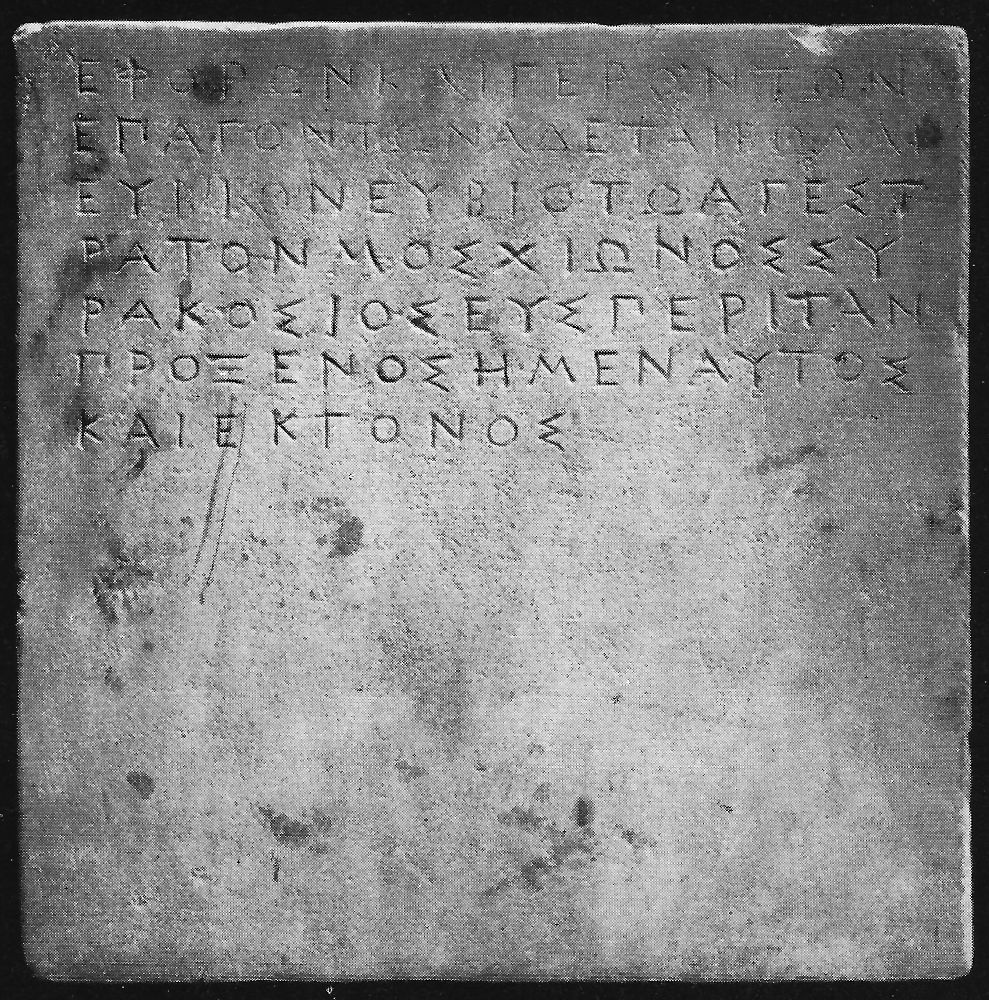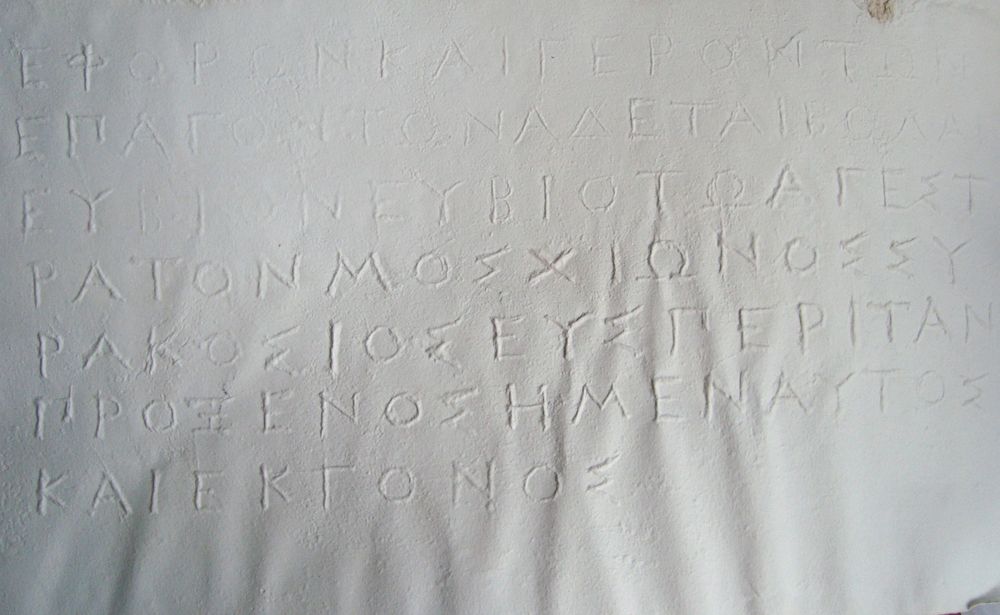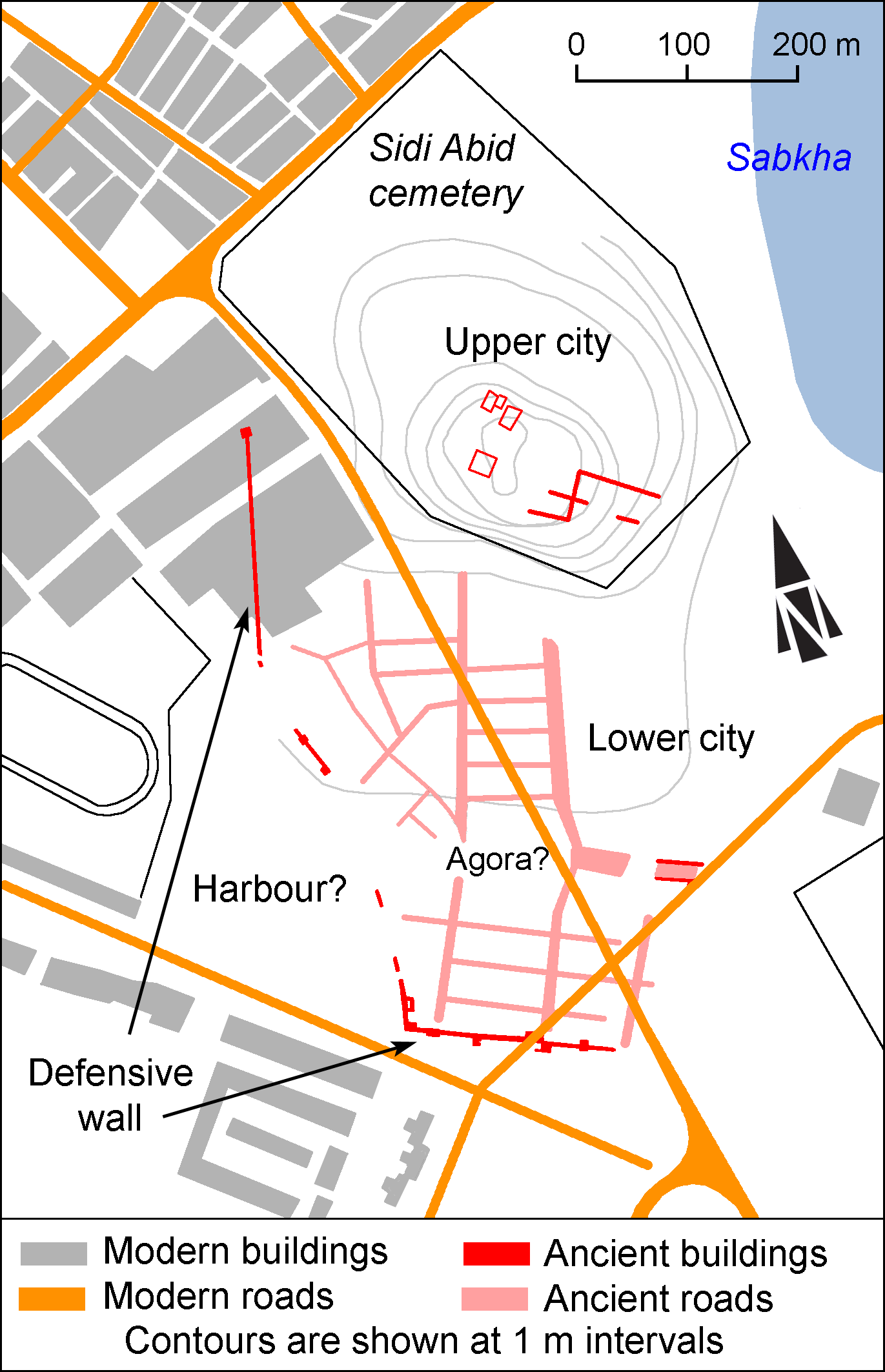EpiDoc XML:
IGCyr0640002
Trismegistos ID:
738336
Source description
Support: White marble square panel (w: 0.4 × h: 0.4 × d: 0.05).
Layout: Inscribed on the face.
Letters: 0.015, very carefully cut on the entire surface.
Date: 350-320 BC (lettering).
Findspot: Found before 1925 at Euesperides ➚.
Place of origin: Findspot.
Last recorded location: Cyrene Museum, 265. Seen by C. Dobias-Lalou in 1976 in Shahat: Cyrene Museum. Seen by E. Rosamilia in 2010 at the same place.
Text constituted from: Transcription from stone (CDL).
Bibliography
Ferri 1925, p. 18 (partial mention); Fraser 1951, and Fraser 1953, whence SEG, 18.772; IGCyr 064000 ➚.
Cf. Chamoux 1953, p. 214, footnote 8 whence Robert, BE, 1954.278; Manganaro 1989, whence SEG, 39.1680; Manganaro 1990, p. 426, n. 71, whence SEG, 40.1594; Ottone 2000, whence SEG, 50.1629; Gill 2004, p. 391, whence SEG, 54.1778; Rosamilia 2023, pp. 232-233, number 2 (text).
Text
French translation
Sur proposition des éphores et des gérontes, le conseil a décidé: qu'Eubios fils d'Eubiôtos et Agestratos fils de Moskhiôn, de Syracuse, soient proxènes des Euhespéritains, eux-mêmes et leurs descendants.
English translation
The ephoroi and the gerontes having proposed, the council decided: that Eubios son of Eubiotos and Agestratos son of Moschion, from Syracusae, would be proxenoi of the Euesperitans, themselves and their offspring.
Italian translation
Su proposta degli efori e dei gerontes, il consiglio ha deciso: che Eubios figlio di Eubiotos e Agestratos figlio di Moschion, di Siracusa, siano prosseni degli Euesperitani, loro e i loro discendenti.
Commentary
This is the only official document known to us from the city of Euesperides. It gives useful informations about its institutions, with a council and ephoroi taking part in the decision. It is also the only proxeny mentioned in the Cyrenaican inscriptions, in contrast with a series of citizens from various cities in Cyrenaica being granted proxeny by foreing cities.
The stone, originating from Euesperides, was published from a photograph by Fraser, who thought that it was lost. However, C. Dobias-Lalou could see it in 1976 at Cyrene, where it was evidently brought as a consequence of the multiple movings of World War II.
CC BY-NC-SA 4.0 Deed Attribution-NonCommercial-ShareAlike 4.0 International License.
All citation, reuse or distribution of this work must contain a link back to DOI: https://doi.org/10.60760/unibo/igcyrgvcyr2 and the filename (IGCyr000000 or GVCyr000), as well as the year of consultation.


